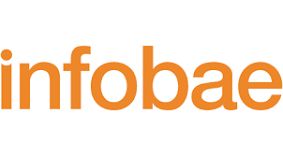BuySellBA
Administrator
Buying with a mortgage: Expenses and everything you need to take into account for a successful transaction - Infobae

Source:

Comprar con crédito hipotecario: gastos y todo lo que hay que tener en cuenta para una operación exitosa
Las principales recomendaciones a tener presente al momento de buscar y adquirir una vivienda en un mercado inmobiliario que está dando buenas señales
August 3, 2024
The main recommendations to keep in mind when looking for and purchasing a home in a real estate market that is giving good signals
By Jose Luis Cieri

A couple signs the purchase of their home through a loan. The loans are adjusted by the Purchasing Value Unit (UVA), which means that the installments vary according to inflation (Illustrative Image Infobae)
The dream of owning a home is a goal for thousands of Argentine families. The return of mortgage credit generated a great dynamism in enquiries in banks and real estate agencies. Although the effect is still limited, there is optimism in the local real estate sector. The outlook has improved and the worst of a crisis lasting more than 5 years seems to be behind us: apartment prices have begun to appreciate in 85% of Buenos Aires neighborhoods .
The process of buying a home with a mortgage loan may seem complex. However, if you are guided by specialists in the sector, the operation, although it must go through several stages, will be completed successfully.
Below is a breakdown of the key steps and considerations to take into account.
Processing before the bank
Today, more than 20 banks offer UVA mortgage loans in Argentina. The process for buying a home includes defining the purchase budget and simulating the loan and the prequalification process at the selected bank.For the first step, "the interested party has to define what budget they need to finance for the purchase of their apartment and can access the different bank simulators to see if they can grant them the amount according to their income," said Daniel Bryn , creator of Monitor Inmobiliario and partner of Zipcode, to Infobae.
In the prequalification process, the interested party approaches the bank that offers the best conditions and presents his or her personal information, confirming that they can actually provide this loan.
Choosing the property
Once the loan qualification steps have been completed and the amount needed has been calculated, the buyer selects a property based on the estimated budget and makes an offer.Maria Franco , director of operations at Mudafy, said: “The offer to the real estate agency is made before the bank makes the disbursement, but it is conditional on approval or, sometimes, even on the granting of the loan.” This involves several steps, namely:
- Reservation : A reservation is signed “ad referendum” of the bank’s approval of the property as “credit-suitable”. This reservation, of a low amount, has a deadline for credit approval.
- Formal application for credit for the selected property : The buyer submits the formal application for the mortgage loan to the bank with the required documentation (ID, pay stubs, proof of income) and the property documentation (deed and plans).

The bank carries out a credit assessment of the applicant, verifying their credit history and payment capacity, and also evaluates the property from a formal point of view (Illustrative Image Infobae)
- Property appraisal: A bank-appointed appraiser evaluates the property to determine its value and creditworthiness by comparing the value of the property to the amount requested as financing.
- Credit approval: If the credit evaluation and appraisal are satisfactory, the bank approves the credit.
- Signing of the deed: A date is arranged for the signing of the deed, where the purchase of the property is formalized. Bryn clarified: “At this time, the bank disburses the funds in pesos to the buyer who acquires the dollars via MEP and pays the price to the seller, which is supported by the deed. This deed is signed at the branch that granted the loan to the buyer.”
For new mortgage loans, on average and according to the proposals of the different banks, the maximum amount can be up to $250 million and can be paid in a period of up to 20 years (240 monthly installments), there are also 30-year loans.
The bank carries out two approvals: it evaluates the buyer based on their income in order to approve them as a “reliable client”, and then it approves the property as a mortgage guarantee, calculating the credit limit based on its market value.
Banks analyze the applicant's credit capacity considering credit history, demonstrable income and job stability.
“These checks result in a limit on the amount to be delivered and an estimate of the initial payment. Once approved, the notary is appointed to carry out the deed. The appointed notary is a professional on the bank's payroll, which allows him to have direct contact with both the parties and the bank,” Franco clarified.
From that moment on, the process follows the usual timeframes for a deed of sale, around 35 days. “The deed with a mortgage must be executed at the bank, and the buyer cannot have absolute certainty about the amount he will receive from the bank due to fluctuations in the dollar,” Franco added.
This is how we finally reach the stage of delivery of the Property : when once the deed has been signed and the disbursement has been made, the seller hands over possession to the buyer.
Additional costs
The buyer must consider several additional expenses when obtaining a mortgage loan:- Stamp Duty : Varies by jurisdiction, generally between 1.5% and 2% of the property value.
- Banking commission : This may include administrative and appraisal fees, which range from 0.5% to 1% of the loan amount.
- Insurance : Life insurance and fire insurance, the cost of which can be around 0.1% to 0.2% of the annual insured value.
The costs of writing include:
- Notary fees : About 2% of the property value.
- Taxes and registration fees : Around 1.5% of the property value.
- Certification and registration fees : Which may add an additional 0.5%.

In addition to the costs of purchasing a home and accessing credit, other recurring costs such as fire insurance must be taken into account (Illustrative Image Infobae)
“The costs of the deed are between 4% and 5% of the value of the property. The real estate commission is around 4%. It is recommended to have a budget of up to 10% to cover expenses and exchange rate fluctuations,” Bryn explained.
When financing a home with a mortgage loan, the following recurring costs must be considered:
- Life insurance : Mandatory to cover the outstanding balance in the event of the policyholder's death. It is usually 0.1% to 0.2% of the annual outstanding balance.
- Fire insurance : To cover property damage, also mandatory. The cost is similar to life insurance.
- Municipal taxes : Depending on the location of the property, they may vary, but it is important to consider them within the monthly budget.
Franco explained: “The monthly mortgage amounts include several items. It is important to ask the bank for a breakdown of each item and its percentage of the total.”
Keep in mind the inflation adjustment
Mortgage loans are designed to facilitate access to housing. They are based on the Purchasing Value Unit (UVA), which is adjusted according to inflation.
Although there is still no boom in operations through UVA mortgage loans in real estate agencies, inquiries and visits to the properties being marketed have increased (Illustrative Image Infobae)
“This means that loan payments can vary over time. The interest rate on these loans is generally lower than that of traditional loans, but the payments are adjusted with inflation, which can result in significant increases in times of high inflation,” Bryn said.
Tips for taking out a loan
There are vital recommendations for those considering taking out a UVA mortgage loan.First, assess your long-term ability to pay. It is key that your income is sufficient to cover the inflation-adjusted installments, which should not exceed 25-30% of your monthly income.
Next, compare offers from different banks. Interest rates, terms and conditions may vary, and some banks may offer better terms for customers who deposit their paychecks with the bank.
“Understanding how UVA works and assessing job stability are essential. UVA is adjusted for inflation, which can affect fees, and job stability ensures long-term payment compliance,” Bryn concluded.
www.buysellba.com

